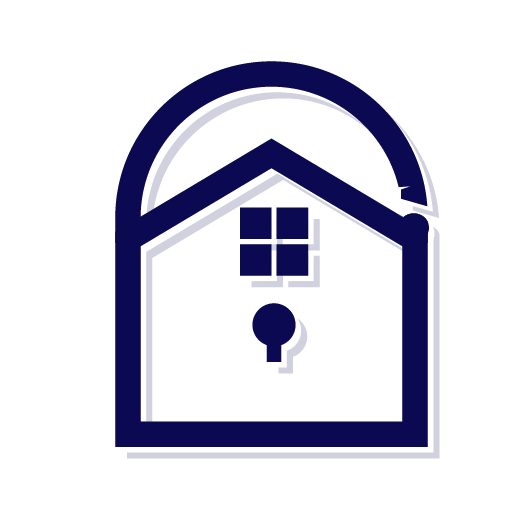From medicare scams to tax scams and reverse mortgage scams, senior citizens are more vulnerable to everyday frauds. Know how to avoid it and keep yourself safe from it.
For hundreds of years, people have been scamming each other. It doesn’t matter how hard you stop them; scammers always plan for a new scheme and get your hard-earned money.
However, quite a few schemes are more common, and you might avoid them as long as you know what to look for. You are unlikely to fall for a scheme that you have been sulked about.

The article list ten senior scams commonly seen around the world that are draining the savings of older citizens. Stay aware, and let your senior family members know about it!
1. Investment schemes:
This is quite a common scam, known as a pyramid scheme too. People work through their entire life to spend some and save some. However, this makes them an attractive target to those running investment fraud schemes.
Con artists guarantee ‘risk-free’ investment options and attract seniors looking for ways to make the most of their retirement money. However, if you research well, many schemes are introduced that target old age globally and safeguard their money.
How to avoid:
If a scenario is too good to be true, it probably is. If someone tries to pursue you with such schemes, be suspicious. Look out at the credibility of such schemes before making a decision. Make sure to invest in government-recognized investment schemes.
2. Email scams:
Some of the nasty scams are spread through email. Several emails present to be connected with a rich and recognized individual. In turn, they claim to give you a fortune after some time if you offer some benefit to them.
Sometimes, victims of such scams go into denial and deposit more and more. They hope to receive a big turnout, which was promised initially. Further, at times, even the family members fail to convince their victimized loved ones, even if they have lost everything.
How to avoid it:
The correct way is to call the organization directly. Often, organizations aren’t even aware that someone is using their name to loot people. Never disclose your personal information to any phone number or email if the officials don’t recognize the organization.
3. Grandparent scams:
Several times senior citizens fall into this trap. For this, cons call up their intended victim and pose as if their grandchild is in distress. They often collect information from their social media or simply call them up to ask, ‘Hi grandma! Do you know who this is?’ Once your grandparents have replied, they ask for money, pretending as if the child is in some financial pinch or emergency.
How to avoid it:
While the reaction is justified, it is important to calm yourself first. Think about it, and call the parent or grandchild to ask about it directly. In most cases, fraudsters ask seniors not to contact any family members, which might alert you. It is absolutely important to be certain about where the money is going.
4. Telemarketing scams:
According to a report, seniors make twice as many purchases over the phone as other age groups. This makes them vulnerable to scams through telemarketing. Often, cons pretend to be a charity soliciting donations, particularly after a natural disaster.
Once a victim falls into it, they are more likely to get scammed again. Further, with no paper trail, such scams are hard to trace.
How to avoid it:
Before donating, visit the organization and request a written receipt of your donation in person. Further, try to obtain contact information from the person about the organization and then cross-check it.
5. Tech support scam:
Seniors are more likely to fall for it when compared to young age. They pretend themselves as a legitimate company in such circumstances and ask for personal info through email or phone. Next, they promise to solve your issue related to your computer or any other gadget.
How to avoid it:
In this case, install antivirus software that alerts you before clicking on links. Avoid clicking on pop-ups that tell you to install antivirus software. It allows them to steal your info from your computer.
6. Medicare scam:
Scammers call you up and pretend to be a member of a governmental organization, telling you your medical id has expired. In this way, they obtain your info for identity theft.
How to avoid it:
Never give any info on calls, even if they are a trusted source. Visit them personally and cross-check it.
7. Reverse mortgage scam:
In some situations, senior citizens are offered opportunities of buying a home with a minimum down payment. This is quite similar to buying a home for free.
How to avoid it:
Never sign up and reply to such advertisements when you don’t fully understand them. If you consider buying a property, discuss it with a recognized retailer.
8. Obituary scams:
Fraudulent call family members of a deceased person or visit them to take advantage of their loss. They claim that the expired member of your family owed them a certain amount.
How to avoid it:
In such cases, ask them for proof or document. Never make such decisions in a hurry.
9. Sweetheart scam:
This scam calls for you to fall into the predators’ trap. The predators try to win your heart by being extra sweet. Once they gain trust, they access your accounts and try to steal your money.
How to avoid it:
Never trust anyone with your money, even your family members. Judge them, and take your sweet time to opt for a decision.
10. Lottery scam:
This is quite a common type, where people receive messages that they have won a significant amount in a lottery. Next, they are asked to deposit a substantial amount in the name of taxes, etc.
If you suspect you are a victim of one of the mentioned scams or know any senior citizen, speak up. Call your local bank, and inform the police nearby.


